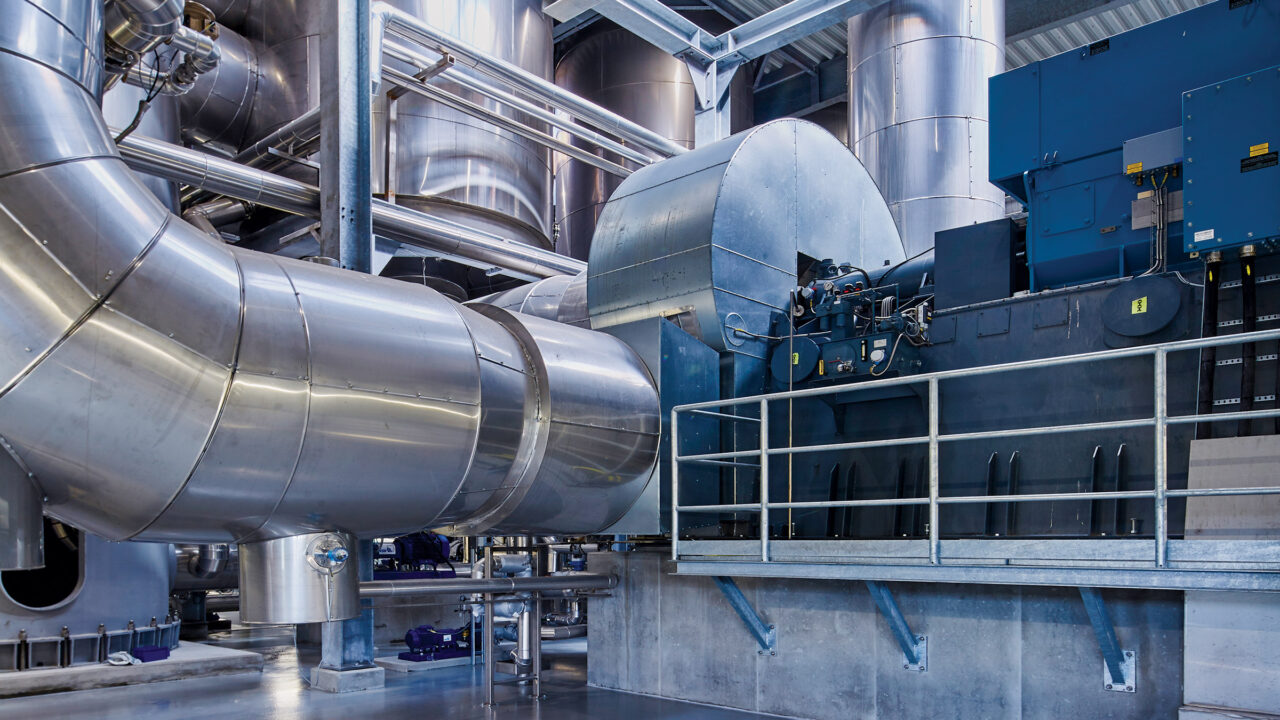Sponsored by ![]()
A MVR heated thermal process significantly improves energy efficiency by reusing the latent heat in the vapor. MVR systems are the alternative to traditional steam-heated thermal separation plants, offering both economic and environmental benefits.
In the race to decarbonize industrial processes, Mechanical Vapor Recompression (MVR) has emerged as a frontrunner for thermal plants seeking to transition away from fossil fuels. This mature technology offers unparalleled efficiency, making it the optimal choice for industries looking to reduce their carbon footprint while maintaining -or optimizing- productivity.
The Power of MVR
At its core, MVR works by compressing vapor and feeding it back into the system, effectively reusing energy that would otherwise be lost. This simple yet ingenious approach allows industrial plants to achieve remarkable energy savings and operational benefits. While MVR is highly efficient for many thermal processes like evaporation, distillation or crystallization, it may not be suitable for liquids with high boiling point elevation or applications with low condensation temperatures. A thorough analysis of the specific process requirements is essential to determine if MVR is the right fit.
Unmatched Efficiency
One of the most compelling reasons to adopt MVR is its exceptional Coefficient of Performance (COP). The COP is a suitable characteristic value to assess the energy-saving potential of a thermal separation plant with Mechanical Vapor Recompression in comparison with a conventionally heated thermal separation plant. A high COP value reflects high efficiency.
In practical applications, GEA MVR systems can achieve COPs of 25 or higher (5 times higher than that of other available options such as heat pumps or gas boilers). This means that for every unit of energy input, the system produces 25 units of useful heat output. Such high efficiency is a game-changer for industries struggling with rising energy costs and stringent emissions targets.
Versatility Across Industries
MVR’s adaptability is another key advantage. It has proven its worth in a wide range of industrial processes, including:
– Food & Dairy production
– Chemical manufacturing
– Industrial effluent treatment
Plus, it is possible to use it for all kind of thermal processes such as evaporation, crystallization and distillation.
Economic Benefits
While the initial investment in GEA MVR technology may be higher than traditional heating methods, the long-term economic benefits are substantial. The dramatic reduction in energy consumption translates to significantly lower operating costs. In many cases, the return on investment can be realized in less than two years.
Environmental Impact
GEA MVR offers a clear path to sustainability by recycling waste heat and minimizing the need for external energy inputs, reducing a plant’s carbon footprint by up to 95% compared to fossil fuel-based heating methods.
Maturity and Reliability
One of MVR’s strongest selling points is its technological maturity. This is not an experimental or unproven solution – GEA MVR has been successfully implemented in various industries for decades. Its principles are well understood and the technology has been refined over time to ensure reliability and optimal performance, this translates to:
– Predictable performance
– Well-established maintenance procedures
– A robust supply chain for parts and services
– A wealth of case studies and best practices to draw from
Future oriented
GEA MVR is poised to play an increasingly important role in industrial decarbonization efforts. The technology aligns perfectly with the global push towards electrification and renewable energy integration. As electricity grids become greener, the environmental benefits of MVR will only increase.
Moreover, ongoing research and development are likely to further improve MVR efficiency and expand its applicability. We can expect to see innovations in compressor design, heat exchanger technology, and control systems that will make MVR even more attractive to a wider range of industries.
The transition to MVR is not just a step towards sustainability – it’s a leap towards a more efficient, cost-effective, and environmentally responsible future for industrial thermal processes. As more industries recognize the potential of this technology, GEA MVR is set to become the new standard in industrial heating, paving the way for a cleaner, greener industrial landscape.
More Information about MVR heating options:
Heating options for thermal separation plants (gea.com)
